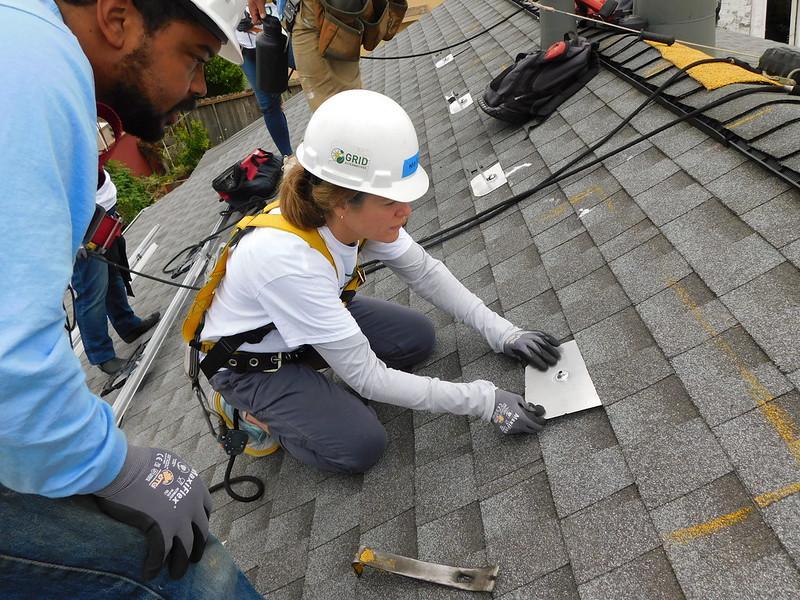After enjoying the beautiful weather and stimulating discussions at Climate Week NYC, I headed home and was immediately met with gray, smoky air blanketing the San Francisco Bay Area from wildfires burning in Northern California and Oregon. It was summer’s final gasp after heat records were smashed around the globe.1
And now, seeing flash flooding in New York, it’s another reminder that Climate Week's panel discussions, meetings, workshops and presentations will mean little if we are not able to take urgent and effective action.
In November, the 28th UN Climate Change Conference (COP28) will take place in Dubai. The event theme is Unite, Act, and Deliver. I couldn't agree more. I'm sharing with leaders heading to Dubai some key insights I picked up after a busy and energizing week in New York:
Partnerships are critical for collective and effective action.
The energy transition will need to be just and fair.
We must urgently accelerate implementation of climate solutions.
Partnerships are on the path to net zero
At many points during Climate Week, I heard speakers conclude that the energy transition will require collaboration. I believe getting to net-zero not only requires working together, but unique partnerships—groups collaborating that may never have worked together before.

At Sibos in Toronto, I was part of a panel discussion about the power of ESG partnerships. At the event, I proudly shared BMO’s US$3 million donation to GRID Alternatives (GRID) to provide low- to no-cost solar energy systems, clean mobility, and sustainable job training to under- and unserved families and Native communities in the western United States. The installations will reduce greenhouse gas emissions by 145,000 metric tons per year, and reduce the cost of household energy consumption for families in some of the most vulnerable communities. But here's the thing: this isn't just a donation—it's a partnership.
In September, BMO employees—including me—climbed onto roofs and joined GRID to help install solar panels on a home here in California just a short drive from where I live. In addition, GRID and the BMO Climate Institute are working on research overlaying socioeconomic data with potential climate risks to identify vulnerable communities. That is one way we can ensure our investments can make the most effective impact.

Climate solutions can help enable a fair and just transition
Our GRID partnership’s job training component is critical, because a just and fair energy transition requires that we have the skilled workforce necessary to help scale solutions such as residential solar that GRID enables. A Boston Consulting Group study estimates workers will need training for up to seven million energy transition jobs worldwide by 2030.2Climate change has a disproportionate impact on marginalized communities, and women often face the highest risks.3 That is why I was delighted and proud that BMO for Women sponsored the Global Futures WE Empower UN Sustainable Development Goals Challenge during Climate Week. I shared a panel with inspiring women entrepreneurs who are creating plant-powered air purifiers, engineering geothermal energy solutions, empowering Egyptian women to ride bicycles to reduce emissions, and more.These women showcased the importance of an inclusive energy transition, too. With the urgent challenge of climate change, we need all stakeholders contributing to solutions.
Finance can support implementation
After Climate Week, one of the biggest questions on my mind for COP28 is how effectively and how quickly the private sector can implement net-zero plans. We have reached a point where business leaders should adapt their companies to more extremes, while sharply cutting emissions at the same time. It's no longer one followed by the other.According to Accenture, 93 percent of companies will need to at least double their emissions reductions to meet their net-zero targets.4 Finance can help bridge the gap between climate commitments and implementation. BMO pledged C$300 billion to financing sustainable outcomes, and created a C$350 million Impact Investment Fund to support innovative companies deploying climate solutions, such as carbon removal technologies.Finance can help in other ways, too. Companies can leverage sustainable finance to support and incentivize achievement of climate goals, from sustainability-linked loans and deposits to monetizing emissions reductions.The fashion industry has been historically carbon intensive, but that is changing thanks to new thinking around finance. I am a board member of the Apparel Impact Institute (Aii), whose US$250 million Fashion Climate Fund aims to unlock as much as US$2 billion in blended capital. The fund's goal is to remove up to 150 million metric tons of CO2 from the apparel supply chain. Aii also announced its first grants under its Climate Solutions Portfolio, a database of verified, actionable carbon reduction and elimination solutions, during Climate Week.5 I think it’s a powerful model that could be impactful in other industries.
COP28 as a catalyst for climate action
Near the end of Climate Week, I moderated a Financial Women's Association panel discussion about the path to net zero. I was struck by the many questions from early- and mid-career professionals in the audience about how they can get involved in climate action. This was a great example of the power, and need for, increasing education and awareness about finance's role in driving solutions toward our net-zero future.I’m looking forward to the world's next big climate-focused gathering – and advancing unique partnerships and accelerating action -- at COP28.
1. Reuters, Summer 2023 was hottest on record, scientists say, September 2023.
2. BCG, Will a green skills gap of 7 million workers put climate goals at risk? September 2023.
3. United Nations, Five reasons why climate action needs women, March 2023.
4. Accenture, Nearly all companies will miss net zero goals without at least doubling rate of carbon emissions reductions by 2030, Accenture report finds, November 2022.
5. Apparel Impact Institute, Apparel Impact Institute announces first grant recipients from its Climate Solutions Portfolio (CSP) to promote decarbonization in the fashion industry, September 2023.
